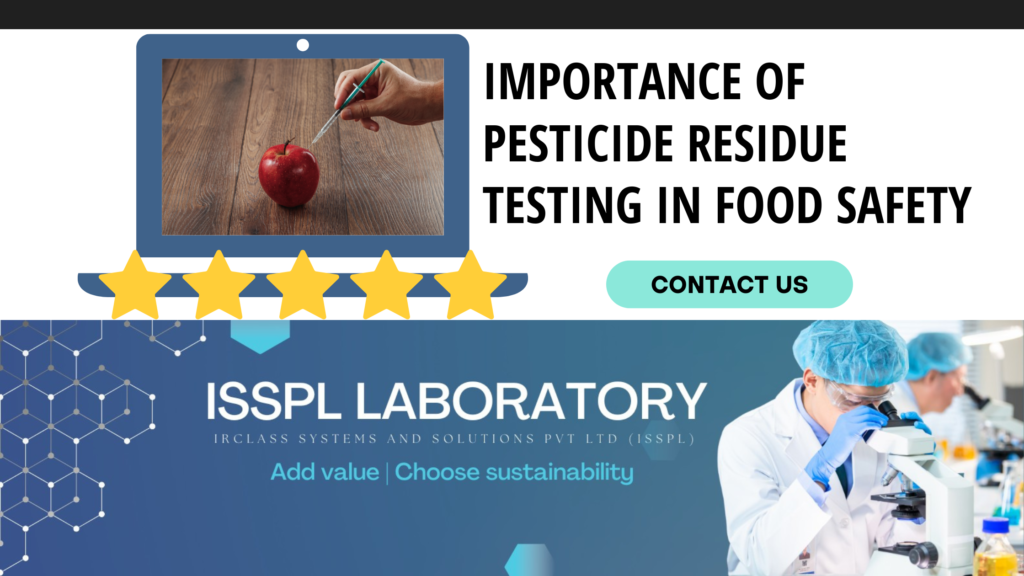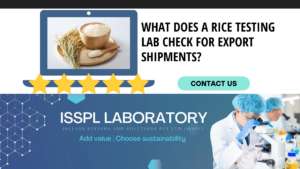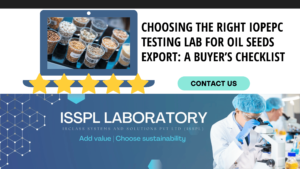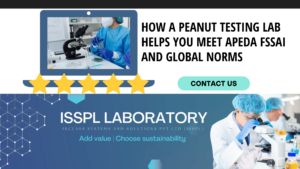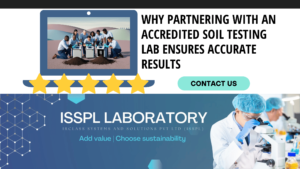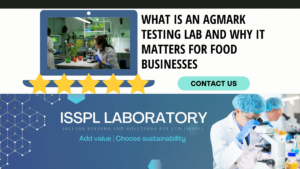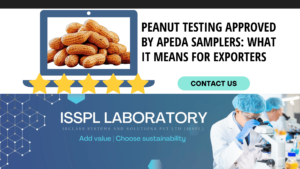An Overview by Team ISSPL - Analytical Testing Laboratory in India
ToggleHygienic and safe food is a fundamental right of humans. One may realize that feeding the growing population is a challenge. It is integral to increase food production and pesticides are vital to amplify the production rate. The use of pesticides is unavoidable. With an increasing population, sustainable food production requirements have risen to the next level. In many cases, the natural and biological processes do not meet the expectation. Thus, the pesticides come as a rescue.
The purpose of using is dynamic, and the outcome is fruitful for those running in the food business race. The chemicals can reduce or stop the growth of organisms that affect the growth rate. The pesticides help the harvest process, including the storage and subsequent production stage. Different chemicals target insects, weeds, fungi pests, etc., for which they are popular across the globe. However, the usage of chemicals can impact the quality adversely. It is critical to check the presence of pesticide residue in the food.
.
The essentiality – Know the need
An unchecked usage of pesticides and fertilizers for the production of fruits, vegetables, and many other crops can impact biodiversity. These chemically harsh pesticide residues can enter the food chain and create potential health threats. All these impact the food safety index.
Governments and authority bodies focus on consumer’s health and monitor the maximum level of pesticide residue in and on food. Testing the food for residue inspection is vital to pass the norms. If any product does not comply with the government-defined standards, there can be risks of penalty and product recall. It is part of the quality regulations, and the concerned companies, industries, and businesses must meet the requirements.
From a business point of view – The presence of chemicals and pesticide residue in the manufacturing process is dangerous for consumers. It can lead to an efficient accumulation of toxic chemical residues in the food chain. Pesticide residue promotes dynamic health risks. It is also not apt for the environment and food chain.
Get a chance to protect your business with a mindful choice. Test the products to identify the levels of pesticide residue and minimize the dynamic risk of adverse health impacts on the consumers. The test result helps obtain a residue analysis of the food products. This way, industrial professionals can comply with the relevant norms and regulations defined by the government. Play your part in cutting levels of harmful pesticides, fungicides, and unwanted herbicides in the food chain. Reducing and checking pesticide exposure is vital to comply with local and international norms of food safety.
Perks of testing –
1. Reduce risk – Follow the best lab-test measures to manage the quality and safety issues.
2. Save time and resources – Obtain a one-stop solution for a trusted lab and ensure optimal food safety.
3. Streamlined production – The new-age testing infrastructure helps meet the regulations, eliminating the risks of production delay or product recall.
4. Better quality and productivity – Test the product at any stage of the product development lifecycle and ensure compliance with the food safety standards.
5. Gain confidence – Focus on pesticide residue testing to boost the reliance of buyers on the products and processes.
An overview – Pesticide residue testing
Pesticide residue testing is a comprehensive inspection process that monitors the pesticide residue levels in food products. The lab tests include standard chemical and microbiological tests. Pesticides are toxic compounds to consumers; if not checked aptly. The chemicals may create or trigger adverse health effects. (including – cancer, effects on reproduction, immune or nervous systems). An unchecked and long-term exposure to the harsh pesticide residues needs to stop.
Techniques and procedures – Decode the practicalities
- Lab-based individuals or groups of pesticides
- Targeted pesticide testing with accurate results.
- Multi-residue inspection for different types of compounds.
The most common food compounds that necessitate pesticide inspection are –
- Organophosphorus
- Organochlorine
- Pyrethroid
- Triazine
- Dicarboximide
- Organonitrogen compounds
- Carbamates
- Plant growth regulators and many more
Samples and products – Pesticide residue testing
- Fresh fruits
- Fresh vegetables
- Dried fruits (including – concentrates, powders, etc.)
- Fruit juices and concentrates
- Tea, Coffee, Cocoa, etc.
- Baby food
- Cereals
- Rice
- Beverages, Wine, and spirits
- Fish and Fish products
- Meat and Meat products
- Herbs and Spices
- Flavors
- Dairy products
- Fats and Oils
- Drugs
- Tobacco
- Feed
- Honey
Obtain the best lab test result.
Everything depends on the test reports and the techniques followed by the doctor, IRCLASS – Systems and Solutions Pvt Ltd (ISSPL) laboratory is an analytical testing service provider with an incredible marked rapport. One can trust the offerings of ISSPL. Obtain the best outcome with well-defined test reports, conducted by experts in the field. Make better decisions for the economic growth of the products.
